Tallest Building in the World: Among the many towering structures around the world, one stands taller than all the rest. The Burj Khalifa in Dubai, United Arab Emirates, is the tallest building in the world. With an astounding height of 828 metres (2,717 ft), it is taller than any other skyscraper. Let's explore this building that holds the title of the tallest in the world.
Which is the tallest building in the world?
The Burj Khalifa in Dubai, United Arab Emirates, holds the record as the tallest building in the world. Standing at a remarkable height of 828 meters (2,717 feet), it surpasses all other skyscrapers in height. Completed in 2009 and officially opened in 2010, the Burj Khalifa has become an iconic symbol of architectural achievement and modern design.
Why is the Burj Khalifa the tallest building in the world?
The Burj Khalifa's unprecedented height is a result of advanced engineering and innovative design. Its Y-shaped floor plan, inspired by the Hymenocallis flower, helps reduce wind forces on the building. The structure is designed to withstand seismic activities and can sway slightly in response to wind and temperature changes.
The building's foundation is equally impressive, consisting of 125 piles, each 1.5 metres in diameter and 50 metres deep, supporting a reinforced concrete mat. Over 12,000 workers from around the world contributed to its construction, which spanned from 2004 to 2010.
Top 5 Tallest Buildings in the World (2023–24)
| Rank | Building | Country | Height (m) |
| 1 | Burj Khalifa | United Arab Emirates | 828 |
| 2 | Merdeka 118 | Malaysia | 644 |
| 3 | Shanghai Tower | China | 632 |
| 4 | Abraj Al-Bait Clock Tower | Saudi Arabia | 601 |
| 5 | Ping An Finance Centre | China | 599 |
Also Read: Which Is The Longest River In The World?
Burj Khalifa
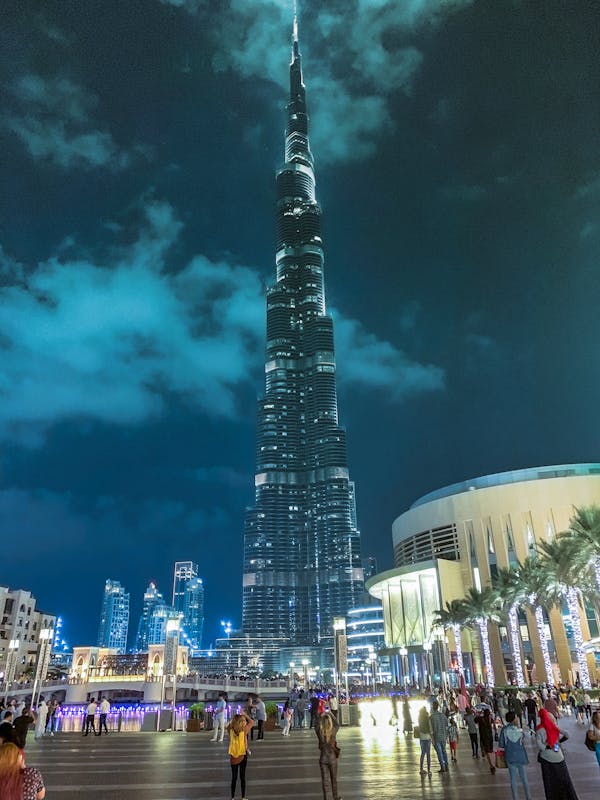
Image Source- Pexels
The Burj Khalifa is not only the tallest building in the world but also a marvel of modern engineering. Its design and construction have set new standards in the field of architecture and have inspired numerous other projects globally.
Merdeka 118
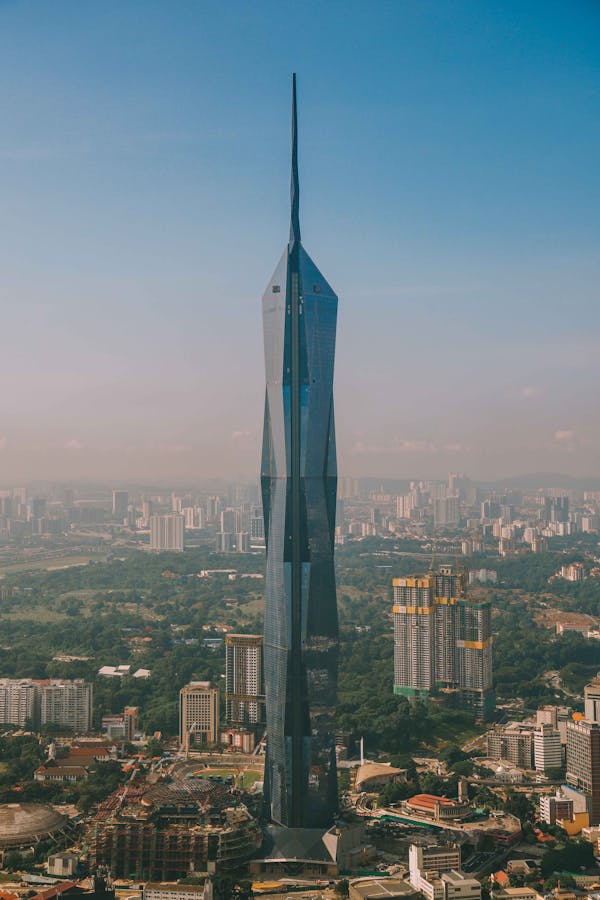
Image Source- Pexels
Merdeka 118, located in Kuala Lumpur, Malaysia, is the second tallest building in the world. Standing at 644 metres, it combines cultural heritage with cutting-edge design, featuring a unique spire that pays homage to Malaysia's history.
Shanghai Tower
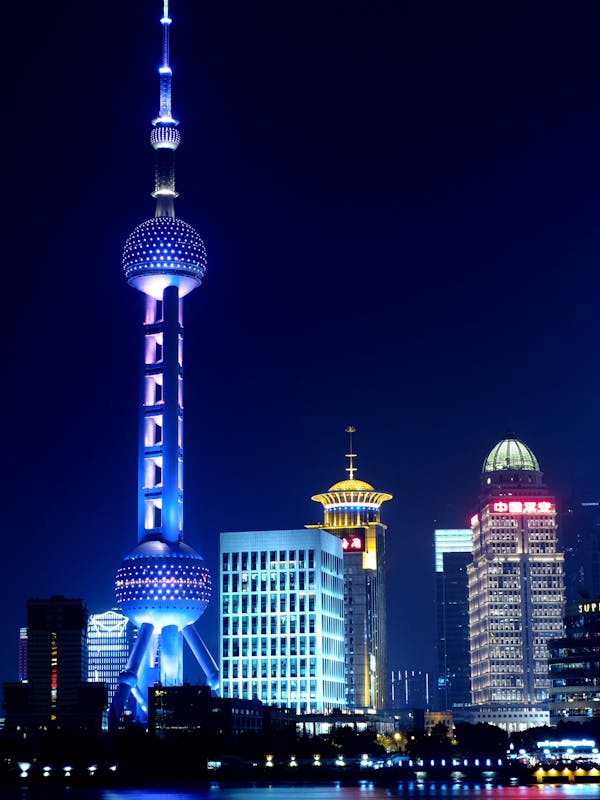
Image Source- Pexels
The Shanghai Tower in China reaches a height of 632 metres, making it the third tallest building globally. Its twisting design symbolises the city's dynamic growth and is a testament to China's architectural prowess.
Abraj Al-Bait Clock Tower
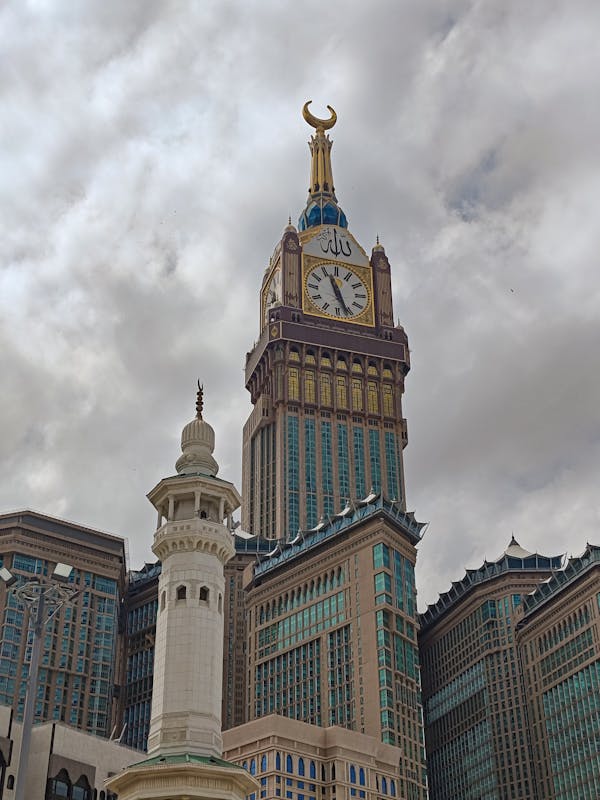
Image Source- Pexels
Situated in Mecca, Saudi Arabia, the Abraj Al-Bait Clock Tower stands at 601 metres. It houses the world's largest clock face and is a significant landmark for Muslim pilgrims visiting the holy city.
Ping An Finance Centre
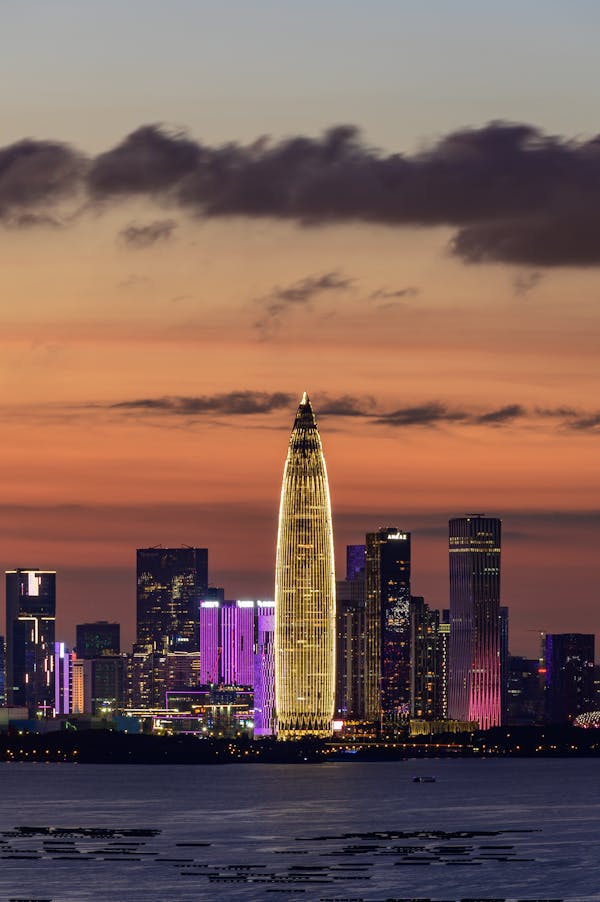
Image Source- Pexels
The Ping An Finance Centre in Shenzhen, China, reaches a height of 599 metres. It serves as a hub for finance and commerce, reflecting China's rapid urban development and economic growth.
Interesting Facts About Burj Khalifa
1. Concrete Equivalent to 100,000 Elephants
The Burj Khalifa's construction utilised a staggering 330,000 cubic metres of concrete. That's enough concrete to weigh as much as 100,000 elephants! This immense amount of concrete was essential to support the building's towering height of 828 metres (2,717 feet).
- Aluminum Equivalent to Five Airbus A380s
The building's exterior is adorned with 103,000 square metres of glass and 15,500 square metres of embossed stainless steel. Additionally, the amount of aluminium used in the Burj Khalifa is equivalent to the weight of five Airbus A380 aircraft.
- World's Fastest Elevators
The Burj Khalifa boasts some of the world's fastest elevators, travelling at speeds of 10 metres per second. These high-speed elevators can whisk visitors from the ground floor to the 124th-floor observation deck in just about one minute.
- Home to Over 1,000 Art Pieces
Inside the Burj Khalifa, you'll find over 1,000 pieces of art by prominent international and Middle Eastern artists. Many of these artworks were specially commissioned to reflect the spirit of global harmony and add cultural depth to the building's interior.
- Eco-Friendly Water Recycling
The Burj Khalifa employs an innovative water recycling system. It collects condensation from its air conditioning systems and uses this water to irrigate the surrounding gardens. Additionally, solar panels on the building can heat up to 140,000 litres (37,000 gallons) of water daily, contributing to its eco-friendly operations.
Comments
All Comments (0)
Join the conversation